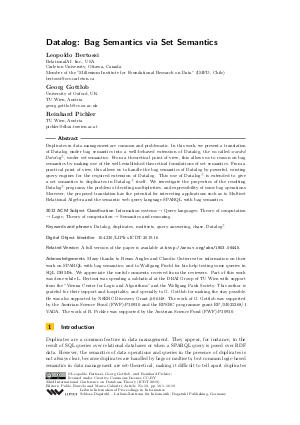LIPIcs.ICDT.2019.16.pdf
- Filesize: 0.61 MB
- 19 pages

 Creative Commons Attribution 3.0 Unported license
Creative Commons Attribution 3.0 Unported license











Feedback for Dagstuhl Publishing